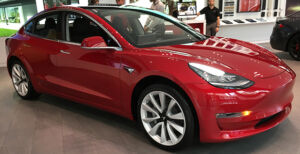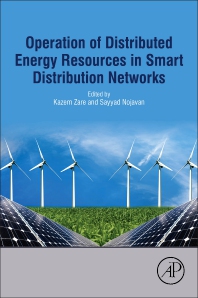I have been predicting for years that an alternative technology would eventually replace the lithium-ion battery that is now used in electric vehicles. Some of the reasons being weight, cost, range and, the availability and cost of cobalt.
The following article describes a promising development that could make a huge difference in EV adoption.
We’re getting closer and closer to finding solutions that will lower EV cost, range and time to recharge. This transition WILL happen and much faster than all the experts expect. Every few months some authority comes out with a new projection and it’s alway years earlier than they had envisioned previously.
“”The switch to an alternative battery is inevitable, and [lithium-sulfur] seems to be the heir apparent to lithium-ion,” she wrote.”
“Australian scientists say they’ve developed a lithium-sulfur battery durable enough to become the preferred power source for electric vehicles with double the range of a Tesla.
Lithium-sulfur batteries are typically less expensive than lithium-ion types now used in electric cars…the lithium-sulfur technology could eventually power a car for well over 600 miles”
Lithium-sulfur Battery Could Cure Range Anxiety — Study
David Iaconangelo, E&E Reporter
January 7, 2020
Australian scientists say they’ve developed a lithium-sulfur battery durable enough to become the preferred power source for electric vehicles with double the range of a Tesla.
Lithium-sulfur batteries are typically less expensive than lithium-ion types now used in electric cars, but they degrade quickly when delivering high volumes of energy.
The Australian breakthrough could change that by providing a more stable cathode, the end of the battery that discharges electrical currents.
As described in a study published last weekend in Science Advances, the lithium-sulfur technology could eventually power a car for well over 600 miles, far outstripping the range of lithium-ion and effectively wiping away consumer concerns about the capabilities of electric models.
“The increased specific energy of this next generation of lithium batteries should allow for 1000km (621 miles) [of range] and more,” while preserving cost advantages, wrote Mahdokht Shaibani, a research fellow and lead author of the study by professors at Monash University in Melbourne.
The lithium-sulfur technology, she added, wouldn’t use cobalt — a mineral largely sourced from Congo and associated with reports of labor abuses. Cobalt is expected to come into short supply over the next decade.
Sulfur, by contrast, is “historically very cheap to acquire” and “in significant abundance,” Shaibani noted in an email to E&E News.
The invention still needs work. The stability of the lithium anode needs to be increased fivefold, she said, and the management system that monitors and protects the battery is in its early stages.
It’s also likely to face scrutiny from battery analysts who maintain lithium-ion is here to stay as the reigning technology for EVs, especially if supply chains mature in coming years. Some automakers, like Fiat Chrysler Automobiles NV and General Motors Co., have also begun to invest in plants where their cars’ lithium-ion batteries will be assembled.
Still, other corners of the industry are hedging their bets. Majors like Ford Motor Co. and Volkswagen AG have researchers working on commercializing solid-state batteries with 500-mile-plus range. Governments in the United States, Australia and Europe are also funding work on lithium-sulfur.
Shaibani said her team was in talks with EV and aircraft companies over possible funding and collaboration, underscoring that her battery’s chemistry could allow them to avoid the shortages of raw materials that some analysts expect in coming years.




